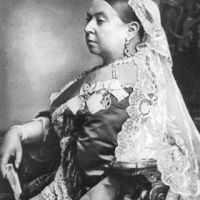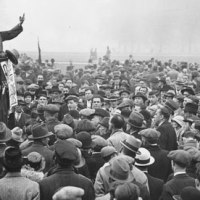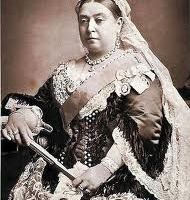Not Boxing…Box Office…..
 At 04.00 BST Sunday 3rd May, 2015 the Pacman will finally meet the Bagman in Las Vegas. A fight long overdue, which over the past six years has been continually put off because of childish and petulant behaviour (mainly from Mayweather) and unsporting gamesmanship.
At 04.00 BST Sunday 3rd May, 2015 the Pacman will finally meet the Bagman in Las Vegas. A fight long overdue, which over the past six years has been continually put off because of childish and petulant behaviour (mainly from Mayweather) and unsporting gamesmanship.
My views have been well known about this money-making debacle over the years, indeed I have made several blog posts about it. Of course this is a welterweight fight, and it is indicative of the sport that the “greatest fight of the century” does not involve a heavyweight.
Indeed, I doubt anyone reading this, or anyone not seriously following the sport, could name the current heavyweight champion of the world. There may even be two, depending on which federation claims the title. Such is the dirge of great boxers and great personalities, it is the welterweights (higher than lightweight but less than middleweight) who have captured the public’s imagination. Mayweather is 5ft 8in, and Pacquiao two inches shorter, but between them they have demonstrated that physical stature is meaningless in Vegas – its hype not height that counts.
It is the richest fight in history, and both will walk away (win or lose) with a purse to fund a third world country for a year. The venue, the promoters, the agents, the marketeers, and the cable companies have all contrived to milk it, and and all have contrived to ensure a massive pay day.
Neither boxer ever fights outside Vegas. The days of the “Thriller in Manila” are over. Today boxing means box office.
I’d like to see Manny win, not because I am biased, but I want him to win because fundamentally he is a Filipino made good – he represents the street fighter from a poor background, is humble, doesn’t flaunt his wealth, has a strong faith, and has a passionate belief that he can make a difference for his fellow countrymen be it in politics or philanthropy.
He is in essence a symbol, and an aspiration to a generation of young people who believe that success can be rewarded, and the reward can be passed on to the less fortunate. He also holds the hopes and dreams of a nation that needs him, and he in turn has not abandoned them through his fame and fortune. Contrast that with Mayweather.
Mayweather hasn’t a single moral bone in his body, and he has demonstrated it in numerous occasions. He flaunts his wealth, is a bling king, and represents unadulterated excess. So what? Why should we expect sportsmen to be role models? Why should we expect Mayweather to be anything more than he is – a successful boxer? How he spends his money, or flaunts it, is really none of our business. Surely it’s not up to us to judge him?
Yet this fight tonight is not just a fight – as financially reprehensible and exploitative as it may be – it is a contest between two very different people who represent two different cultures, two different idealisms, and two different attitudes.
It’s not a battle of the heavyweights, but it’s a battle nonetheless. Both will win financially, yet only one will win the crown. Lets hope that he who wears the crown, wears it with dignity. The only man with dignity in the ring tonight will be Manny Pacquiao – so win or lose – that cannot be taken away from him!
Good luck Manny! Floor Floyd!
In God We Trust
 All American Presidents and candidates believe that God is on their side. The latest being Rand Paul, who says “with God’s help” he will win. That’s in sharp contrast with the UK candidates for Prime Minister. The Labour leader Ed Milliband has gone on record as being an atheist, although he does have faith (whatever that means).
All American Presidents and candidates believe that God is on their side. The latest being Rand Paul, who says “with God’s help” he will win. That’s in sharp contrast with the UK candidates for Prime Minister. The Labour leader Ed Milliband has gone on record as being an atheist, although he does have faith (whatever that means).
The Liberal Democrat leader Nick Clegg is also an atheist (but raises his son in his wife’s Catholic faith).
The Conservative leader David Cameron admits that he is a lapsed Christian, as indeed is the UKIP leader Nigel Farage (yet both proclaim that they have not lost their faith – deep down they have Christian values etc. blah blah).
This is a quandary.
I’m a Christian in so far that I believe in Jesus Christ. Any man who suffered as much as He, through persecution, betrayal and crucifixion, yet still decided to return within 48 hours to save those who treated Him so badly surely gets my vote. That’s dedication! Jews of course don’t believe that Jesus was the Messiah – he didn’t meet the conditions laid down in the Messianic Hebrew Chronicles – but they accept he may have been a prophet. The Messiah has yet to come – apparently.
Still, we have reached a tolerable medium, and Judeo-Christianity are the scales which balance precariously on the fulcrum of faith.
So how does that leave us in this secular western world? Well, the United Kingdom is a Christian country. Not my words – but the Queen’s. She is officially “Defender of the Faith and Supreme Governor of the Church of England”. She appoints Archbishops and bishops on the advice of the Prime Minister – the “Head of Her Majesty’s Government”.
This puts me, and Her Majesty in a pickle, although it’s more of a pickle for her (I’m just pickled). It beggars the question – how can an atheist Prime Minister advise “The Supreme Governor of the Church of England” on who should be appointed as the Archbishop of Canterbury – the symbolic head of the worldwide Anglican Communion? How can a Prime Minister of a Christian country in which the laws since Magna Carta were founded on Christian theology, if not exegesis, espouse from his or her political pulpit the importance of Christian values and Christian morals? How can a Prime Minister be a PM without practising what he preaches?
Love it or loath it, the United Kingdom is predominantly a Christian country. Other religions and faiths function very well within it. They are welcome. Britain is traditionally the home for all – and it’s a worthy commendation. Yet, with a constitutional monarchy, with a Queen as the Head of State, not only in the UK but in other Commonwealth countries around the world, one would expect her Prime Minister to have a Christian faith. It is the bedrock of over 1500 years of British history, and one way or another it has stood the test of time, at home or abroad.
In the USA candidates who declare themselves as atheists wouldn’t stand a chance. “In God we Trust” is written on every dollar bill, and if God was never mentioned in the Constitution He was certainly present between the lines.
So here is my problem. Who do I vote for? An atheist or a Christian? Should it matter? After all, the future of the nation isn’t at stake, what’s at stake is our humanity to our fellow man and how we care for each other.
What’s God got to do with that? I think you know my answer!
The bowlers holding the batsman’s willy…..
 Explaining cricket and it’s terminology is akin to lecturing about quantum mechanics or the string theory in particle physics. Whilst the game is changing in it’s delivery and methods of tournament, the fundamentals remain the same. The number of balls bowled, or the time involved has changed for sure, but at the time of writing – International Test Match Cricket continues with enthusiasm. County Cricket is similar.
Explaining cricket and it’s terminology is akin to lecturing about quantum mechanics or the string theory in particle physics. Whilst the game is changing in it’s delivery and methods of tournament, the fundamentals remain the same. The number of balls bowled, or the time involved has changed for sure, but at the time of writing – International Test Match Cricket continues with enthusiasm. County Cricket is similar.
Cricket is a sport synonymous with England. Just like Rugby it has influenced the world. General terms like “It’s not cricket” means that it is not sporting behaviour. To “bowl a maiden over” does not mean you have scored in a nightclub, assuming a maiden still exists in such establishments. Yet a “maiden” is a virgin. It means that out of six balls bowled, no runs (points) were conceded. With the rise in womens cricket (fine fellows they are) I’m not sure of this phrase “to bowl a maiden over” is still in common parlance or even acceptable. We have to be very careful with words these days.
However, I shall continue gender free (simply because when I first wrote this – in more innocent times – sex and gender and certain nouns were not an issue). Unless an individual has ever played cricket it is unlikely that they will understand it. Unlike football or tennis where the rules of the game are reasonably simple (although football has become more complicated for example with VAR – the Virtual Assistant Referee) – cricket will baffle the greatest armchair enthusiast. Cricket is a legacy of British influence around the world. In India, Pakistan, Sri Lanka, Africa, Afghanistan, France, Australia, New Zealand, the West Indies,and even the USA, to name a few, and all regard it’s rules and phrases as a common language.
For the uninitiated here is an overview. A failure to understand is not a reflection on an individuals intelligence. A cricket match is contested between two sides each of eleven players. When one side is “in” the other side is “out”, and it is the job of the “out” side to get the “in” side out. This is achieved by dismissing the batsmen on the “in” side by several methods.
When a side is batting it is called an “innings”, and will last as long as each batsman (I shall continue to use the masculine pronoun i.e “man”, “he”, “him” purely for simplicity and not because I am a neanderthal chauvinist or misogynist – editing is hard in the new world!) can hold his wicket. the wicket is what the batsman must protect at all costs – if someone says “you’re on a sticky wicket” it means your position is precarious. Unless that is, if they hold their innings for quite a long period and score an extremely high number of runs, in which case the captain will “declare” or “forfeit” the remainder of his innings. It’s a tactical decision, and he is hoping the opposition will not be able to match his side’s number of runs in the available number of overs. Failure to declare can result in the match drawn, even though one side has more runs than another. In business, If your boss says he’s “holding his wicket”, it means he has control of the situation and hanging on.
When a batsman is bowled out, a new batsman goes in. When both sides have been in and out, they do it all over again, and this is called the second innings. If your boss suggests you have more than one innings, there is hope for you yet.
Eventually, if all goes to the wire, only one batsman will remain, who will not be allowed to bat on his own – he’s the last man standing. This last man, however, may not necessarily be the eleventh or last man who went in to bat. Indeed, the last man standing could have been one of the first men in, if he was never out. If your boss says you are the last man in, the chances are you are doomed.
Still with it? Right. Time for some explanations. Two innings per side will occur in international test matches. A test lasts for five days. Up to five tests can be played over several weeks, called the First to the Fifth Test respectively, when the event is hosted by one country, whose opponent is another (commonly called the tourists). Whilst many matches may result in a grand trophy, England and Australia play each other every two years on average, for a small urn of cremated wooden bails burned in 1882 – The Ashes – which is a prize more sought than any trophy of precious metal. Think about that – they play for a small pot of burnt ashes – yet it probably is the most sought in cricket history,
The time of a cricket match is dependent on the number of overs per side. That is the number of balls the bowlers are permitted to bowl. There are six balls to an over. Therefore if a match is limited to ten overs per innings, (in “one-day” cricket, for example and county games or 20/20 cricket which limits the overs to 20) then after sixty balls have been bowled, the innings’ end, regardless of how many wickets are left (if any). You are forgiven for being confused at this point!
Wickets in this case are the number of batsmen who have not come to the crease (still in the pavilion), which is the demarcation line from the stumps where the batsman is allowed to hit the ball or defend his wicket, and also the last point for the bowler to execute his delivery. If the bowler steps over the crease after his approach run, then it’s a “no ball”, and a score (or run) is given to the opposing side. If a bowler successfully bowls his over without any runs being scored by the batsman, then he would have bowled a “maiden over”.
The stumps are three 28inch vertical pieces of wood which comprise the wicket, with a total width of 9 inches side by side, and balance atop two small wooden objects known as the bails. There are two wickets, one at each end of the pitch, which is 22 yards long from stump to stump with each wicket defended by a batsman. The bails must dislodge from the stumps for the batsman to be out.
In the surrounding oval shaped playing field, with a diameter of roughly 160 yards, stand the fielders of the side which is “out”. With the exception of the wicket-keeper (who crouches behind the batsman’s wicket being bowled at) and the bowler, there are nine fielders who can take up positions from Silly Point to Square Short Leg (very close to the batsman), Silly Mid Off and Silly Mid On (midway between the length of the pitch), and Long Off to Deep Fine Leg (boundary cover), as well as another possible 25 positions, and all with equally silly names.
It is their job to prevent the batsmen from hitting the ball sufficiently for them to run between wickets, or hit the ball to, or over, the boundary thereby scoring an automatic four or a six. The fielding side can either prevent this by catching the ball whilst in flight (caught out), or retrieving the ball from the ground and returning it by aiming it at the wicket, in the hope that it will reach its target before the batsman returns to his crease (“run out” or “stumped”).
The batsman can also be bowled out by the bowler if his ball hits the wicket, or even be given out if the ball hits his leg, which is called LBW (leg before wicket). The wicket-keeper is the batsman’s nemesis, and is ever keen to knock off the bails at any opportunity after catching the ball when it flies past the wicket – always in the hope that the ball clipped the bat or the batsman strayed outside his crease.
Over the course of a match, the ball (which is red, extremely hard, made of layers of core cork and leather, and must strictly weigh between 5.5 – 6oz) cannot be changed unless under the strictest rules of the game. A ball should last the complete innings and at least 80 overs in test matches.
This prolonged use can affect the properties of the ball and influence its flight. Consequently a bowler will polish his ball on one side by rubbing it around his groin area, or on the sleeve, which results in the characteristic red stains on his whites (trousers). Polishing it in this fashion can determine the “swing”, and some bowlers will spit on the ball prior to polishing. Ball tampering is a serious offence in cricket, and any form of physical interference, other than spit and polish, is forbidden.
The match is won by the side which scores the highest number of runs over the two innings in the set number of overs, and on the aggregate over the five tests, regardless of whether all players have had their day at the crease.
And now the big question. What is a googly? It’s a ball bowled by a right-arm spin bowler, designed to confuse a right-handed batsman by appearing to spin from leg to off, but actually spins in the opposite direction. Hence the term “to throw a googly”, meaning to confuse or upset an opponent, either in sport or business.
Finally, a batsman is only called out if the umpire says so. And he won’t say so, unless he’s asked. How’s that? That’s right! “Howzat” is the challenge to the umpire in order to get his reaction, and he will raise his index finger if it’s a good call. If anyone sticks up a middle digit in response to his decision then he’ll likely be dismissed, because that is, along with all other forms of ungentlemanly conduct, certainly not cricket!
Note: The title of this post refers to a commentary by Brian Johnston during a test match at the Oval in 1976, when Michael Holding of the West Indies was bowling to England batsman Peter Willey.
Prospero’s Island ?
When the world thinks of Jamestown, Virginia it should also think of Bermuda. At first glance they would both appear as historically unconnected as Tuvalu is from Trieste, yet both are interlinked, and neither may have survived without the other.
Bermuda was settled by accident rather than desire, unlike Jamestown which had a settlement plan based on economics, English enterprise, and sailing expertise.
The ship Sea Venture, in the van of an English fleet of seven, carrying settlers and supplies on route to the fledgling and failing colony of Jamestown, Virginia, became separated by a hurricane just a week from destination in July 1609.
Suffering extensive damage, and with almost all hope lost, salvation hove into view. Unbeknown to the forlorn crew and passengers, they were to find refuge on an uninhabited island, a mere 22 miles long and one mile wide, which would eventually become Great Britain’s oldest colony.
2015 celebrates Bermuda’s 406th anniversary.
The story of the survivors is fodder for a Hollywood movie and equally enthralling. One of them was non other than the future husband of Pocahontas.
John Rolfe, later to become Jamestown’s original cultivator of tobacco as an export crop, left a wife and child buried in Bermuda, but along with many other survivors managed to reach Virginia a year after the shipwreck.
Bermuda, also known by early seaman as the “Isle of Devils” due to the dangerous reefs around it, and “Somers Isle” after the commander of the original fleet, Sir George Somers – was originally named after the Spanish navigator Juan de Bermudez, after a passing visit in 1503.
It was subsequently to be visited several times over the next 100 years by the Spanish and Portuguese, but superstitious legends prevented them from making a settlement. This has been accredited in part to a bird, the Bermuda petrel, whose diabolical callings invoked images of spirits and devils. It was factors like these, however strange or unlikely, which would allow the English to plant their flag without conflict and have far reaching impact.
Another survivor of the ill-fated venture was William Strachey, an English writer noted as a primary source of the early history of English colonisation in North America.
Along with Rolfe, he too succeeded in eventually reaching Virginia 10 months after the shipwreck, and it is his account of the expedition’s plight, which is accredited to influencing William Shakespeare’s play “The Tempest“.
Together with Admiral Somers and Sir Thomas Gates (who was on route to become governor of Virginia and whose skills at salvaging the desperate remnants of the floundering, were to create the first Bermuda settlement), they oversaw the building of two ships, the Deliverance and the Patience, built from remnants of the Sea Venture and the local timber of the Cedar Tree.
When they finally managed to escape the island in May 1610, they carried with them 142 castaways, leaving just a handful behind to hold claim. They had a mission to fulfil – to save Jamestown, whatever the cost.
They arrived at the Virginia colony in May 1610 finding it all but decimated through famine, disease and hostile natives who had all but blockaded them. Only 60 settlers remained alive of the original 500 sent three years earlier. This period is known as the Starving Time.
Nevertheless, through the courage and endeavours of the hardy and convicted survivors of the Atlantic storm ten months earlier, the Jamestown colony survived. Those Jamestown settlers still alive, watching the two ships slowly appear up the sound, must have thought salvation had come. It was the original thanksgiving.
This crucial episode in Jamestown’s history tends to be overlooked. Had the storm of July 1609 succeeded in wiping out the supply fleet, by the time Lord De La Ware’s relief ships arrived in Jamestown in May, 1610 (3 months after Somers’) nothing would have remained.
It was only through the brave endeavours and sense of purpose of Sir George Somers and his committed followers, which held and reinvigorated life into the dying colony, keeping it sustained just long enough for De Le Ware’s mission to succeed. Somers, returning to Bermuda to collect more food, died soon after through illness.
So enamoured with the island, he had asked for his heart to be buried there. Legend has it that his wish was honoured. His body meanwhile was pickled in a barrel and returned to Dorset, England where it was buried in his home village of Whitechurch Canonicorum.
Game of Thrones and The Walking Dead…….
The Walking Thrones. Or is that the Game of Dead? I’m confused.
These two dramas have captured the imagination of press and public, and I’m not sure what I’m watching any-more. Having said that, I like the Walking Dead purely because of it’s US 2nd Amendment agenda, which encourages and gives right to the American citizen to bear arms.
In the event of a zombie apocalypse, those with guns will survive. It’s a grand shoot ’em up, and the beauty of it is that they can happily fire away, comforted in the knowledge that their targets are already dead. A gorefest of violence, justified as survival. In between we find a disparate and dysfunctional motley array of individuals who find it impossible to leave Kansas…or is that Georgia? Does it matter?
By contrast the Game of Thrones is pure fantasy – a cross between Shakespeare’s Titus Andronicas and the legends associated with the Sub Roman-British Dark Ages. Hence why British thespians are keen to play a part – however small, however short.
Being pure fantasy anything is possible. Sex, violence, tribal war, torture and political intrigue all play a part, and in essence the author George R R Martin sourced much of his research with the War of the Roses. Yes, the infamous Red Wedding scene described as too extreme for audiences to handle was based on historical records. Fact is stranger than fiction.
I’ve only just finished the latest series of the Walking Dead. This drama encourages young people – children no less – to carry guns and use them – a veritable plethora of hand and semi-automatic weapons.I seriously worry about that portrayal.
Sure, they use them to defend themselves against the rampant zombies – but I find it extremely disturbing that this is acceptable drama, and it can only encourage sections of the US public to ingratiate their children with the gun.
My point being that a drama designed for entertainment, surreptitiously aids the gun lobby, the NRA, and as children will be watching, enthuses them to emulate the scenario. I regard this as the height of irresponsibility. Some kids may emulate Superman and think they can fly – most are sensible enough to know that Superheroes are fiction – but in the Walking Dead, the message is a child can legitimately carry and use a gun. This is dangerous territory.
By contrast, guns are not present in the Game of Thrones (for all the violence), and most people know that dragons don’t exist. It is pure entertaining fantasy, in a fantasy world, populated by fantastic people. That’s the difference.
The Walking Dead is a survivalist’s dream. A nightmare in the modern world, where the survival of the fittest is key. There is no room for the weak in this world. They are surplus to requirements. After this length of time, isn’t it time that it projected a positive agenda? Or expressed some intelligent dialogue of predicament? No, it carries on, shooting, blasting, worshipping the power of the gun – in the name of entertainment.
Perhaps we expect too much from it, and should watch it purely for what it is – science fiction and popcorn fodder. But here’s a thought. After four series not one protagonist has discussed the way of the world, nor addressed the question of circumstance, nor attempted to analyse the predicament, investigated, or sought solution. Not one theory has been expounded.
It’s time to bury the dead.
Related articles
The Walking Dead – A Game of Scones
Catching up with the last episode of The Walking Dead our intrepid heroes have all managed to make it to “Sanctuary”. The usual convoluted strorylines have played out, with back stories of the main characters, indeed, this is becoming a soap opera, the difference being that the ever present threat of dangerous dead people are forever present.
It’s reached the stage that the enemies are not zombies, but real people. It’s an interesting development, and necessary to fill out a simple survival tale. The survivors have resorted to basic animal instincts to survive, for in a world of Zombies, nobody can be trusted, chaos ensues, and basic instincts akin to mediaeval times take control.
How much more shock can we endure. As I have mentioned in other posts, the Walking Dead is an excuse for gory violence on a grand scale. Children either commit murder or are victims of it. Adults teach the children how to fire arms. Messages are written in the blood of zombies because pen and ink are not available. Which is quite astonishing, because when the survivors raid a shop they never pick up any sensible things like writing instruments. They often find tinned fruit, and seem to have an unlimited supply of matches to light a fire.
They have been wandering around Atlanta for four seasons now, and the weather has been ambient. The most sinister villain was English – The Governor – ok, he was played by an English actor – and a nasty piece of work he was. But he was the smartest because he knew about local government control – mad, but focused – a bit like Boris Johnson, the Mayor of London (I was going to say without the crazed look in his eye…but on second thoughts…!)
Unfortunately David Morrissey (said Governor) completely flipped his lid and went rampant on a gorefest of murder and mayhem – resulting in his own demise. It’s strange that if he had kept his head (and his eye patch) he would have been a great leader – after all, in the land of the blind, the one-eyed man is king! In the Land of the Zombies he would have been Emperor!
Still, David at the mid-season break was killed off, and our motley crew of survivors were scattered to all points of the compass.
It’s a sad loss – a villain true was Morrissey. I equate his demise to the execution of Richard Sharpe in the Game of Thrones. I mean whatisname….(long pause).. Ned Stark aka Sean Bean (or vice versa).
Focus for Gawds sake!
On the subject of Game of Thrones….hang on, that’s a different post! Meanwhile, back in Atlanta, our heroes were dispersed but seem to have all met up again in a strange place which offers safety. Of course, there’s a lot more to this than meets the eye, and something sinister is afoot. I don’t really know what it is – I’ve never read the comics (oops, I mean “graphic novels”) but it looks like the hero Rick (English actor Andrew James Clutterbuck aka Andrew Lincoln) has found his mojo and is about to unleash hell.
What would Hollywood do without the English? Indeed, what would Game of Thrones do without us?
On which subject, I must make an observation. Surely if the zombie apocalypse happened in London, we English would have created some order by now – you know – contingency, bureaucracy, trade, pen pushers, administration, home guard, colonel Blimps etc? How about the Women’s Institute and Salvation Army? After all, we all like a brass band and a cup of tea with crumpet. A Game of Scones! Clearly Atlanta isn’t ready for all that.
The Walking Dead – the 2nd Amendment Showcase….
**Possible Spoiler Alert**
Having caught up with the Walking Dead, after its mid-season (4) break, I am left defending my initial observations here, here and here, back when it all began.
The problem with the drama is that it’s walking in circles. Series one saw the motley group of survivors attempting to find somewhere safe to live. Series two found them on a farm which got overrun and they had to leave, getting dispersed in the process; series 3 found them in a prison; and series four sees them overrun, back outside, and dispersed yet again.
Captain Cook and the USS Guardian…
In 1770 Captain Cook's HMS Endeavour grounded on the
unchartered waters of the Great Barrier Reef and got stuck.
Through exceptional seamanship he lightened his load and with a severely
damaged hull was able to free his ship, and nurse her towards a safe harbour
for repairs.
He had no state of the art navigation, no electronic devices, no
sea-bed imaging and no satellite communication.
On January 17, 2013, the USS Guardian, a 223ft minesweeper,
costing $277 million, commanded by Lt. Cmdr. Mark Rice, ran aground on the
Tubbataha Reef, in the Philippines.
Move down ladies and gents – Knife wielding incident at Buckingham Palace!
"They're changing the guard at Buckingham Palace; a man got
tasered and went down with malice"
Forbrydelsen….The Killing
Since BBC4 began showing European crime and political
thrillers I've been hooked. They started with Wallender, the Swedish morose
detective who carried the careworn wear and tear of debilating anxiety, whose
heart condition wasn't helped by his general lack of fitness.
He drinks and
smokes, carries a paunch, lives by the sea, has a complicated private life
but survives with his trusty dog. He can't wait for his retirement, but at the
same time knows that once he takes his pension it could set him off on his long
slow decline. Still, I like Wallender because he's a seasoned old miserable
git, with rare displays of compassion and emotion.
Then there was Spiral (Engrenages) the hard hitting series
about the sleazy underbelly of Paris and the rather suspect methods of the
French police. Certainly not Midsomer Murders this one. Our anti-hero Captain
Laure Berthaud is another character beset by emotional problems who walks the
fine line between right and wrong in order to get to the truth. In fact modern day police methods here are
not dissimilar to the Sweeney's (circa 1974). Spiral is not for the squeamish
and Laure is on constant edge, always under suspicion by her superiors, and
beset by colleagues who are equally loose cannons.












